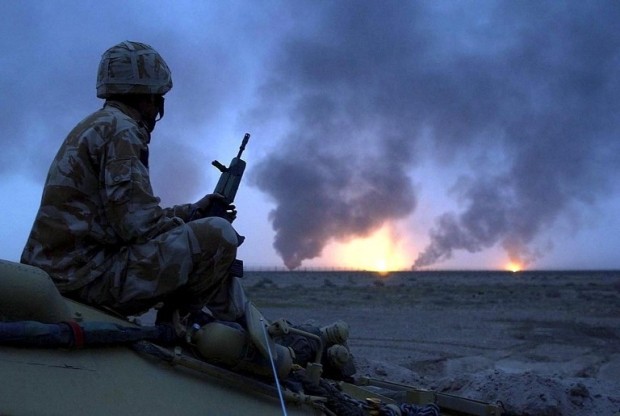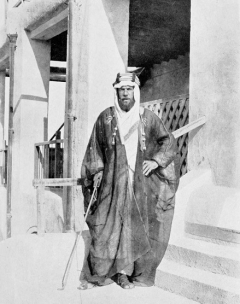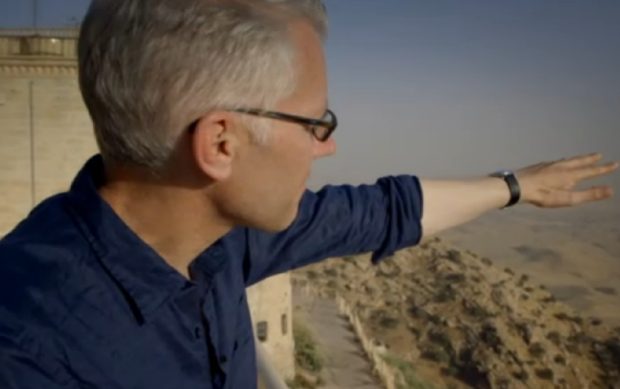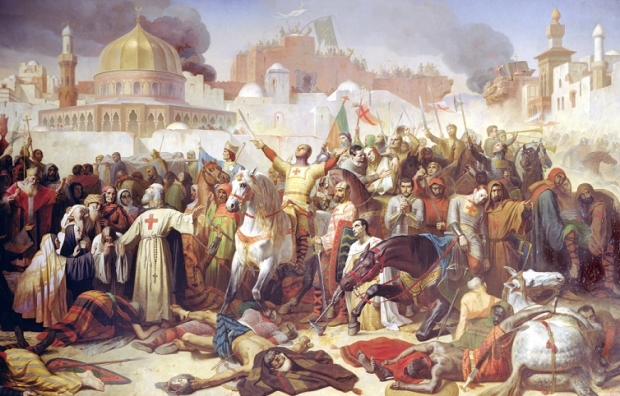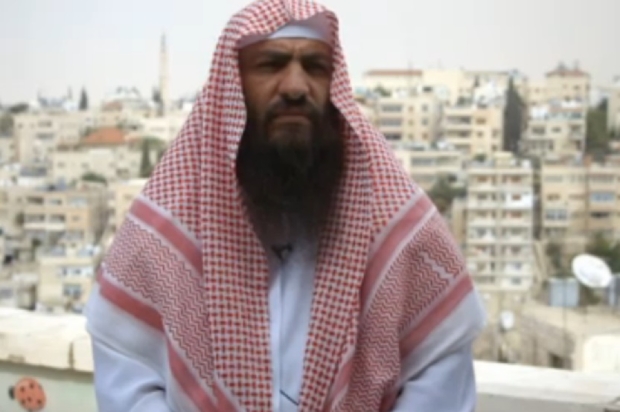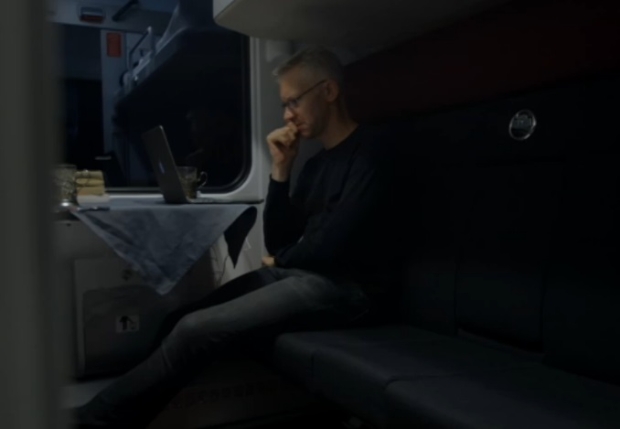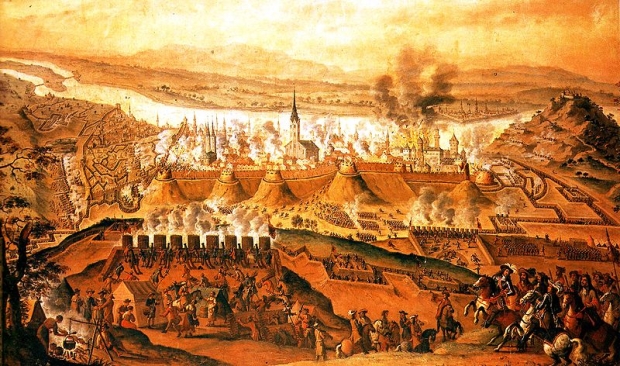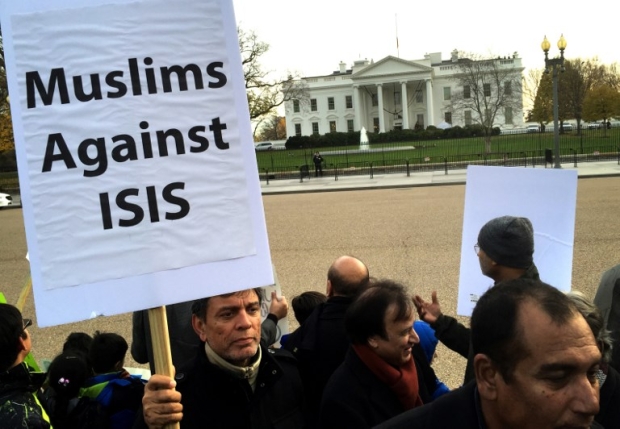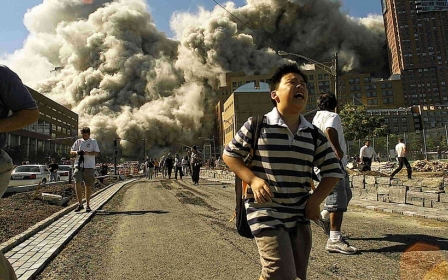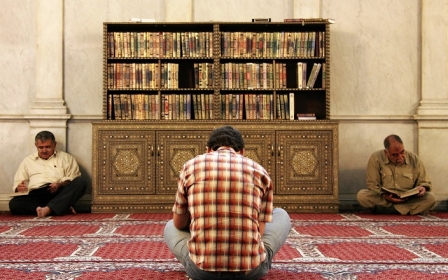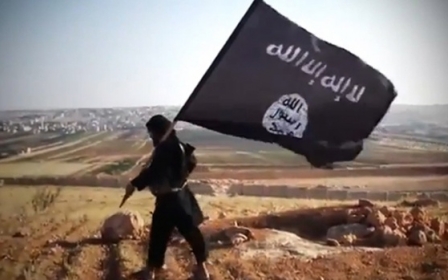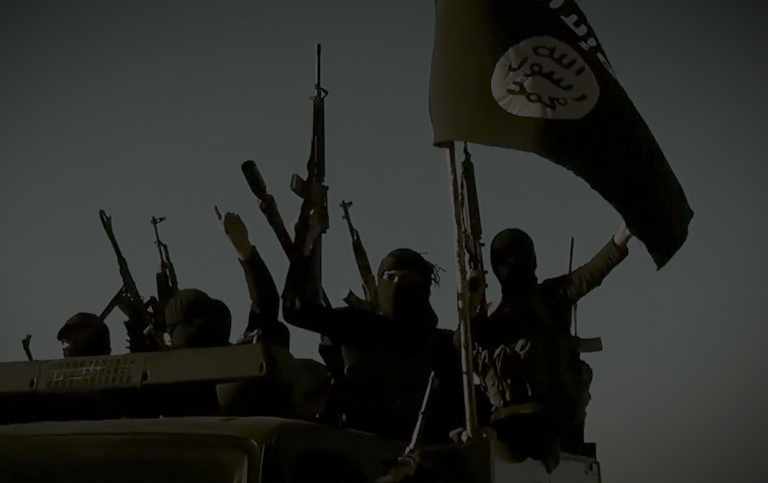
No, Channel 4, Islam is not responsible for Islamic State
Unlike most historians, Tom Holland writes books which bring the past to life. This makes him a national treasure.
But I am baffled by his recent documentary about Islamic State (IS), Isis: The Origins of Violence.
I am a longstanding admirer of Holland. However, the arguments he makes in his film are intellectually dishonest
It argues that the extreme violence of self-proclaimed IS should be interpreted in significant ways as a manifestation of Islam itself.
Holland suggests, for example, that the Ottoman army which captured Constantinople in 1453 was a precursor to IS. He thus connects IS to Sunni Islam's most distinctive political institution, the Caliphate.
He also links IS to texts from the Quran and states that IS atrocities are directly inspired by the teachings of Islamic holy scripture.
He uses the Prophet Muhammad himself, who is regarded by all Muslims as the perfect human being, to help explain the genocidal violence of IS in the 21st century.
Holland compares verses and stories told about the Prophet as "mines waiting to go off, improvised explosives, and they can lie there for maybe centuries and something happens to trigger them, and you get this".
On the basis of these arguments, Holland implicitly demands that Islam itself should reform.
We have often heard variations of this thesis - that Islam and Western liberal civilisation cannot coexist - from the English Defence League, Donald Trump's ideologists, neoconservative think tanks, tabloid newspapers and far-right parties in continental Europe.
But it's less common from one of our more admired public intellectuals, amplified on what appears to be quite an expensive Channel 4 TV production.
This is why I believe that a sceptical analysis of the claims made in Isis: The Origins of Violence is needed.
(The film was broadcast on Channel 4 to acclaim on 17 May. I delayed this article because of the atrocities in Manchester and London during the general election campaign, and then the attack on Finsbury Park Mosque. It would have been insensitive to discuss at that time and better to wait until time had passed.)
Baathist origins of IS
I am a longstanding admirer of Holland. However, the arguments he makes in his film are intellectually dishonest. He fails to include information which does not fit his thesis and, just as bad, distorts facts which appear to support it.
The first problem is Holland's account of the origins of IS, for which he ignores the two most important facts.
The spark for the group's creation was the 2003 invasion of Iraq, and its brutal aftermath.
Saddam Hussein's Baathist army was disbanded by the Coalition, but its warriors did not disappear. Stripped of their livelihood, many subsequently turned into bitter enemies of the United States and the new regime in Baghdad.
Many of its future leaders were held in Abu Ghraib and Camp Bucca prison camps, where they established the contacts and evolved the strategy of conquest that exploded across the Middle East a few years later.
This background explains why experts have estimated that one-third of IS commanders were former Baathist soldiers.
Experts say that Islamic State leader Abu Bakr al-Baghdadi's two principal lieutenants are Iyad al-Obaidi and Ayad al-Jumaili - former Iraqi army officers under Saddam.
As far as these commanders are concerned, Islamic State is a Baathist renaissance project, a secular enterprise aimed at winning back the status and power of which they were stripped in 2003.
'Faith, even in its extreme form, is just one of many means to an end. Islamic State's only constant maxim is the expansion of power at any price'
- Christoph Reuter, Der Spiegel journalist
In the words of Der Spiegel journalist Christoph Reuter, whose revelatory study of IS is required reading: "There is essentially nothing religious in its actions, its strategic planning, its unscrupulous changing of alliances and its precisely implemented propaganda narratives.
Faith, even in its extreme form, is just one of many means to an end. Islamic State's only constant maxim is the expansion of power at any price."
Yet Tom Holland's account of Islamic State contains no reference to the Baathist origins of IS.
An equally significant omission concerns Saudi Arabia. As the former MI6 officer Alastair Crooke has explained, it is impossible to get to grips with IS without knowing about the deal struck after World War One between the House of Saud and the followers of Muhammad ibn Abd al-Wahhab, founder of the Islamic movement known as Wahhabism.
Wahhab believed that Muslims needed to return to an all-absorbing focus on the One God, and that the widespread preoccupation with the Prophet Muhammad (except as simply the greatest of the various prophets) or his companions, or his wives, or the "saints" and martyrs, amounted to idolatry.
He maintained that Islam had to be cleansed of all accretions (beyond devotion to the One God) and that Muslims faced a choice: either they give up their idolatrous habits (such as celebrating The Prophet's birthday), or be put to death, with all their property and family falling forfeit.
Wahhabis, and the then-minor tribal leader Ibn Saud, pursued this doctrine through a campaign in 1802 of death and destruction, killing thousands in Karbala and plundering and looting the holy shrines, before repeating the exercise in Taif.
Finally, Mecca and Medina gave themselves up to Ibn Saud's occupation. It was a cleansing by sword and by fire.
Series of contradictions
The Book of Monotheism, the best known text written by Wahhab, stands as a primary source of teaching for IS recruits.
Wahhabism would be Abd al-Aziz's tool, but he required the backing of the British government to shore up his dominance. To do this he needed to make his movement look more like a modern state (Philby advised him on the best approach), and his army of head-choppers and shrine destroyers needed to be reined in.
The British helped with the latter, and British machine guns and planes were used to kill most of Abd al Aziz's Ikhwan brotherhood in 1929.
Philby subsequently converted to Wahhabism and joined (then King) Abd al Aziz's court.
The contradiction between the worldly cynicism of the pro-Western Saudi royal family, and Wahhabi fundamentalism is profound. The real target of IS is not, as Holland suggests in his documentary, the West. Instead, the rise of Islamic State can, in part, be understood as an explosion of Wahhabi fury against the corrupt Saudi royal family.
To sum up, IS is a deadly combination of the military expertise of former Baathist generals and murderous Wahhabi beliefs. Yet Isis: The Origins of Violence does not mention Baathism, Iraq, Wahhabism or Saudi Arabia.
This failure leads Holland into a series of contradictions.
Islamic State is a deadly combination of the military expertise of former Baathist generals and murderous Wahhabi beliefs
For example, Holland stands at the Mar Mattai monastery in northern Iraq, looking south towards Mosul. He notes that 1,200 years ago this region was "the beating heart of Christendom".
He says that "Christians of the lands out there were enjoying a golden age". He says there are only a handful of monks left at the monastery, and that if they were to venture down to either of two Muslim villages beneath him, they would be killed "on the spot".
He says that for the first time in 1,500 years, mass is not heard in Mosul. "And the reason for that," he says, "is that over there, those lands that were once the Christian heartland are now the Islamic State."
He frames the decline of the Christian population in terms of an unmistakable dichotomy between Christianity and Islam.
But what Isis: The Origins of Violence does not mention is that 1,200 years ago, the lands he calls "Christian heartlands" were ruled by Muslims.
The era he calls a Christian "golden age" is widely known in the region itself as the Islamic Golden Age.
It is true that this peaceful coexistence was at times uneasy. The arrival of Saladin, a Sunni Kurd who would go on to found the Ayyubid Dynasty after conquering vast amounts of territory, caused the monks to flee in the 12th century, but the monastery soon returned to its former prominence. Then the Mongols partially destroyed it at the end of the 13th century.
It was left abandoned until 1795 when (under Ottoman rule) it was renovated and fence walls built around it. In 1845, additional wings were added.
Christianity did not vanish from Mosul because the region has become Islamic. It vanished because it came under the rule of an authority without religious tolerance. It is IS alone, not Islam, that is to blame for the desperate situation faced by the Christians of northern Iraq.
Holland fails to ask how the monastery enjoyed a resurgence under Ottoman rule. Remember that, according to him, the Ottoman Caliphate was a precursor of Islamic State
Yet Holland fails to ask how the monastery enjoyed a resurgence under Ottoman rule. Remember that, according to him, the Ottoman Caliphate was a precursor of Islamic State.
For his thesis to be consistent, the Ottomans should have destroyed the monastery and driven the monks away after 1453. But the opposite happened: the Ottomans allowed Christians to reinhabit the monastery and restore it to its former splendour.
The Ottoman Caliphate was not intent on persecuting Christians within their domains. The Ottomans saw Christians, like the Jews (many of whom also flourished under Ottoman rule) as "people of the book" and therefore to be protected.
As pre-eminent historian (and severe critic) of Islam Bernard Lewis put it, the position of Christians and Jews in the Ottoman Empire was "very much easier than that of non-Christians or even of heretical Christians in medieval (Catholic) Europe".
Failure of scholarship
Holland fails to point all this out to his audience. To have done so would have obliged him to acknowledge that Islam does not pose a more substantial threat to unbelievers than, say, Christianity.
I am a Christian, I belong to the Church of England and attend church regularly. I regret to say that I could easily have made a documentary about Christianity and violence on the same lines as Holland's work on Islamic State and Islam.
I could easily have made a documentary about Christianity and violence on the same lines as Holland's work on Islamic State and Islam
I could have dug out verses from the Bible in which God orders death for non-believers. I could have found gruesome verses about homosexuals and the punishment of adulterers, then quoted these out of context.
I could have taken viewers back to the Middle Ages, to compare the slaughter perpetrated by Crusaders when they took Jerusalem in 1099 with the restrained entrance of Caliph Omar to the city 450 years earlier in 637; or Saladin a century later in 1187.
I could have gone to Srebrenica, the site in 1995 of the only genocide in Europe since World War Two. I would have shown that the massacre of Muslims there was carried out by Christians, as Justin Welby, the Archbishop of Canterbury, pointed out on BBC Radio's Today programme after the London Bridge atrocity.
I could have gone to the churches planted by the Serbs along the Bosnian-Serbian border in the last few years as a warning to Muslims to keep away. I could have shown how Mladen Grujicic, the Christian mayor of Srebenica, who denies that genocide took place in his town, was invited to President Donald Trump's first prayer breakfast in Washington in February.
I could have demonstrated that the Rwandan genocide two decades ago was carried out with the active complicity of local church leaders.
But this kind of assault on Christianity would have been selective and therefore unfair. When I reported from Srebenica earlier this year, I was careful not to blame Christianity. It would have meant ignoring the wonderful and too often sacrificial work carried out by churches throughout the world, the good they do in countless ways, the eternal truths that I believe we Christians embody.
I could even have carried out the same ruthless exercise with Buddhism, a religion normally associated with non-violence.
A few weeks ago, I went to Myanmar to document the persecution of the Rohingya Muslims. I could have used the term Buddhist violence, given the dreadful role currently being played by Buddhist monks in generating hatred against Muslims.
This is not just a failure of scholarship. It means that, perhaps without intending to do so, Holland is vindicating IS's claim to be a legitimate representative of Islam
But that too would have been unfair. Too many other factors are involved.
Holland has no similar scruples. This is not just a failure of scholarship. It means that, perhaps without intending to do so, Holland is vindicating IS's claim to be a legitimate representative of Islam.
Think about it.
IS claims legitimacy on the grounds that it is acting in the name of Islam. The vast majority of serious scholars and religious authorities dispute this, insisting that Islam is a religion of peace.
These scholars say that IS acts contrary to the teachings of the prophet. Then along comes an internationally respected British historian who suggests that the group's claims can be justified.
Muslim voices
Holland is only able to pursue this line of argument by being selective with the facts as well as his use of Muslim voices.
Two scholars, Shiraz Maher, deputy director of the International Centre for the Study of Radicalisation and a member of the War Studies Department at King's College London, and Jordanian Salafist Abu Sayyaf appear in the film.
Both, Abu Sayyaf more strongly than Maher, support the thesis that the bloodthirsty actions of IS can find justification within mainstream Islam.
Fair enough. But Holland had a serious duty to be balanced, especially in a film as controversial as his. Why has he made no attempt to do so?
Bear in mind that Holland's underlying target is not Islamic State: everyone, bar a few fanatics, agrees how evil it is. Instead it is Islam itself, which Holland holds in part responsible for IS atrocities.
Holland ought to have rigorously put his thesis to the test against at least one such scholar, if not more.
By not entertaining an opposing opinion, Holland diminishes his own argument.
Holland had a serious duty to be balanced, especially in a film as controversial as his. Why has he made no attempt to do so?
How did Holland get away with it? In the days when I used to present "authored documentaries" (the term used by media executives to describe TV polemics) on Channel 4, it was an unbreakable editorial requirement to present the alternative point of view.
The only circumstance in which this rule was breached was when the opposing side refused to be interviewed or give a statement, in which case this refusal would be made clear to the audience. One can therefore assume that Holland made no attempt to approach any Muslim voice who argued that Islam is a religion of peace.
Search for the hadith
Holland plays fast and loose with the words of the Prophet himself in order to help his case that Islam is inherently violent.
He says, over pictures of the Mar Mattai monastery and the surrounding hills, that:
‘Fourteen hundred years ago monks like Father Yousif provided Muhammad himself with a model of holiness. Islam, though, would give monasticism a novel spin. "Our monasticism," the Prophet is reported as saying, "is jihad in the cause of God. Our monasticism is the crying of allahu akbar on the hilltops."
Earlier in the programme Holland tells viewers that in the Quran, jihad did not mean violence but simply "the effort required to be a good Muslim".
Yet here he quotes a hadith, attributed to the Prophet, in the context of a discussion of IS violence towards Christians.
The implication – and far too much of the film works through suggestion rather than rigorous argument – is that the persecution of monks such as Yousif, and the attack on Sinjar in August 2014 that immediately follows the quotation in the film, are a natural results of, and not divergences from, the Prophet's teaching.
I was perplexed at the credentials of the hadith cited by Holland. It did not appear to match any of the hadiths attributed to the Prophet. So I emailed Holland, asking him to "provide me with the exact Arabic or even English hadith sources where you got your version in which the terms rahbaniyya (monasticism), jihad, and takbir are mentioned".
In his response he failed to provide me with a hadith which matches the one cited in the film.
He did, however, direct me to Violence and Belief in Late Antiquity: Militant Devotion in Christianity and Islam, in which, he said, the late Thomas Sizgorich examined "the influence of monasticism on the evolution of religiously sanctioned violence in early Islam".
I searched as hard as I could, but I could find no hadith in Sizgorich's book which matched the one used by Holland.
However, Holland did helpfully refer me to page 180, where the following hadith is quoted: "Wandering monasticism was mentioned in the presence of the Prophet of God, and the messenger of God said, "God gave us in its place jihad on the path of God and the takbir from every hill."'
'There is no hadith which contains the three words ‘monasticism' (rahbaniyya), ‘jihad' and ‘takbir' (a term for the crying of ‘Allahu Akbar') together'
- Michael Mumisa, author of studies of classical Islamic literature and PhD scholar at Cambridge University
At this point I consulted Michael Mumisa, author of numerous studies on classical Islamic literature and Special Livingstone PhD scholar at Cambridge University. He told me that Holland's hadith does not exist: "There is no hadith which contains the three words ‘monasticism' (rahbaniyya), ‘jihad' and ‘takbir' (a term for the crying of ‘Allahu Akbar') together," he said.
This matters because Holland uses his hadith to suggest that Islam in some way corrupted the Christian idea of monastic holiness for violent purposes. This is a serious claim: if asserted then it should be rigorously sourced and established.
I'm also disturbed that Holland introduces the words Allahu akbar instead of takbir, the word actually used in the Sizgorich hadith.
To be fair, the meaning of the two phrases is all but identical. Holland would doubtless argue that he used the term to be more explicit to non-specialist audiences.
However, he must know that the phrase has come to signify violence as a result of its recent use by militant jihadists. To use it in this context is inflammatory.
Hadith literature is very detailed and distinguishes between safe hadiths, dubious hadiths and fabricated hadiths. In this delicate territory rigour, accuracy and fairness is paramount.
The hadith which Holland pointed me towards first appeared in the late 8th century in the Book of Jihad, believed to have been written by Ibn al-Mubarak, a warrior-scholar who fought against the Byzantines.
If indeed it was him who produced this collection of hadiths, then it was as part of propaganda literature to justify these wars on religious grounds. Scholars, including Mumisa, doubt it was ever uttered by the Prophet.
But Holland tells his audiences none of this. Instead his film encourages its audience to assume that the Prophet himself condoned violent jihad.
Selective information
This is not the only time that Holland presents selective information.
Take this atmospheric piece to camera, delivered from a railway carriage as it rattles past Vienna, with reference to the Ottoman attempts to take the city:
"We've just gone through Vienna. Muslim armies came this far twice. We've passed the town where they massacred everyone. The further east across Europe you go, the more people remember things like this. It's nightmarish and it's supposed to be. ISIS has a user's manual, it's called the Management of Savagery. We need to massacre others, it says. Hostages must be eliminated in a terrifying manner."
But Ottoman attempts to conquer Vienna only begin to make sense when placed in the context of a long series of conflicts that began in the early 15th century and intensified after the Ottoman conquest of Constantinople in 1453, with massacres on all sides.
As Joachim Whaley made plain in a recent magisterial history of the Holy Roman Empire, the primary issue wasn't religion. Rather it was the threat posed first to Venice and then to the Habsburgs by the establishment of an eastern empire. After all, the Ottomans were originally regional commanders in Anatolia, who took control themselves and then expanded north-westwards. They were Muslims whose first conquest was the territory of their own Muslim overlords.
However, Holland confirmed to me that the town where ‘they massacred everyone" is Perchtoldsdorf in lower Austria. Details are scant, but somewhere between 300 and 1,000 are thought to have been killed there in 1683.
But Holland fails to tell TV viewers that there were Habsburg atrocities too. After the Battle of Buda in 1686, for example, the Habsburgs took the town back from the Ottomans, who had held it for 150 years. They slaughtered 3,000 Turks, selling thousands more as slaves and killing half of Buda's Jewish population as well.
Indeed, during this bloodthirsty period of European history far worse massacres were carried about by European armies against each other. Historians think that during the 17th-century Thirty Years War, Germany's population may have sunk by around one quarter.
This means that the Ottoman massacre outside Vienna can only be understood in the context of such contemporary horrors such as the sack of Magdeburg in 1631, when the Imperial Army destroyed a Protestant city, reportedly slaughtering 20,000 out of 30,000 inhabitants. Any responsible historian would provide that background. Holland does not. Once again, to have done so would have undermined his thesis.
Truth distortion
I am also troubled by Holland's use of the term "Muslim armies" rather than the more accurate but less inflammatory "Ottoman armies".
Such labels support his argument that Islam has long been at war with other religions. But again, this distorts the truth. The Ottoman empire was a multi-ethnic, multi-religious empire which often protected minorities. For example, the Jews who survived the Austrian armies at Buda fled, if they could, back into Ottoman territory where they were much safer than under the Habsburgs.
Had he been truthful with TV viewers, Holland's thesis that Islamic State's murderous origins can be traced to the Ottoman Caliphate would have been undermined
Holland does not mention that tens of thousands of Hungarian nationalists led by Imre Thokoly, who wanted to resist Habsburg imperialism, fought with the Ottomans at Vienna in 1683. Perhaps more than half of the Ottoman army was made up of Christians rather than Muslims - Greeks, Armenians, Hungarians, Bulgarians, Romanians, Serbs fighting alongside Arabs and Kurds as well as Turks and other Muslims.
The film also fails to mention that the Ottomans at the gates of Vienna were in an alliance, very much of convenience, with Louis XIV, the (Christian) French King.
Ian Almond has written that these factors reflected how "little use terms such as 'Muslim' and 'Christian' are to describe the almost hopelessly complex web of shifting power relations, feudal alliances, ethnic sympathies and historical grudges" characterised European history.
For centuries, the Ottomans did have a famous practice of devşirme, which was the conscription and forced conversion of Christian boys in conquered territories, but it is surely wrong to suggest that Ottoman violence was "Muslim" and alien to Europe.
Though converted, many men who rose to prominence came from old aristocratic Orthodox families. There were Christians in many provincial armies and navies, such as a contingent of Serbs who fought at the Battle of Ankara in 1402.
Yet Holland misleadingly labels the Ottoman army outside Vienna as "Muslim". Once again, had he been truthful with TV viewers, his thesis that Islamic State's murderous origins can be traced to the Ottoman Caliphate would have been undermined.
What is missing
There are still more serious issues with this documentary.
He does not explain the difference between Islamic State and al-Qaeda. This distinction is important, especially if the extent of IS's isolation is to be understood. He fails to examine evidence that Islamic State has been supported by allies of the West.
He creates a Christian-Yazidi-Shia-versus-Sunni narrative, which means he pays too little attention to the thousands of Sunni Muslims who have been murdered by IS.
He fails to stress how often Islam has been synonymous with tolerance rather than violence. He devotes a great deal of attention to the recent IS-linked terrorist attacks in Paris without once mentioning the legacy of appalling French colonial atrocities in Algeria as a possible factor in the terrible IS attacks.
He says the "core of ISIS strategy" involves radicalising Muslims in the West. Untrue: its core strategy has been, at least until the recent series of devastating setbacks in northern Iraq, in building a territorial Islamic state.
He does not mention the latest research (for instance the work of Olivier Roy and Marc Sageman) showing that IS recruits tend to know little about Islam, and are often drifters with a background in drugs and petty crime.
This lack of connection with Islamic movements, of course, makes them more dangerous because potential terrorists are difficult to detect. But it undermines Holland's central contention that Islamic State's origins can be found within the tenets of Islam.
A presenter's responsibility
Isis: The Origins of Violence is well made, with strong camera work, first-class editing and an edge of drama mixed with dark moody music. The settings in monasteries, in devastated cities and by the pyramids are excellent. I have never seen a better presentation of the horror which befell the Yazidis. Holland himself is a gifted and passionate TV performer.
He has, so far as I can discover, received excellent reviews for this work in the mainstream press. The Guardian called it ‘brave and thoughtful' and predicted that it might win a BAFTA, while Douglas Murray in The Spectator praised the "scholarly truthfulness" of what he called a "deep and seriously important programme".
It is not good enough to make an argument mainly by stringing together a series of sequences or anecdotes, no matter how upsetting the subject, and then come to a conclusion
I can't agree. It is not good enough to make an argument mainly by stringing together a series of sequences or anecdotes, no matter how traumatic and upsetting the subject, and then come to a conclusion.
A responsible presenter needs to put forward the counter-argument, present its case fairly, and then refute it. On the rare occasions that Holland alludes to counter-arguments he then brushes them aside.
This lack of balance is especially serious because Holland's film engages directly with the ancient argument that has taken on new intensity since Samuel P Huntingdon evolved his "clash of civilisations" thesis that Islam is inherently incompatible with, or even at war against, the West.
Numerous scholars, activists, journalists and politicians have bought into variants of this thesis: Bernard Lewis, Daniel Pipes, Douglas Murray, Melanie Phillips, Geert Wilders, Pam Geller, Michael Gove, Tommy Robinson, Donald Trump and many others.
Before I wrote this article, I asked Holland whether his film would have had greater strength, authority and balance if he had interviewed at least one of these experts so his audience could have heard the other point of view.
Holland replied that "we were not making a film about whether or not ‘Islam' sanctions violence - an issue on which, as we make very clear in the film, there is a huge spectrum of opinion."
He continued: "Specifically, we were exploring whether there was anything within Islamic scripture and tradition that ISIS (& militant Salafi-Jihadists more generally) felt justified them in their treatment of non-Muslims. Abu Sayyaf, both in his own right, and as a close ally of al-Maqdisi [editor's note: a leading Jihadi theorist], whose stature as one of the most important radical Muslim thinkers alive today I hardly need to spell out, was a vital witness to this. To provide intellectual and historical context, we also made sure to include Shiraz Maher, himself a Muslim, and author of the definitive study of Salafi-Jihadism. I cannot think of a documentary on ISIS that has featured two such intellectually distinguished interviewees."
'This was a film as its title plainly signified - on the historiography of violence, not on Islam tout court'
- Holland in response to author
"This was a film," Holland insisted, "as its title plainly signified - on the historiography of violence, not on Islam tout court."
I think Holland goes much further than he claims in his reply. He is not just arguing that IS violence is the tragic consequence of an epic misunderstanding of what Islam teaches: if he was saying no more than that, then he and I would find ourselves, as we often do in other circumstances, in warm agreement.
Instead he locates the origins of IS violence in Islamic scripture and Islam's most distinctive political institution, the Caliphate.
Surely he is asserting that Islamic State is partly right and that there is something dark in the heart of Islam which makes the religion a threat to the rest of us?
It's not just me that thinks this. So, for instance, does The Spectator writer Douglas Murray. In his favourable review referred to above - which was retweeted without demur by Holland - Murray said that Holland was arguing that Islamic State's "most important inspiration is a version of Islam whose roots can be traced to the origins of the religion, its foundational texts and the behaviour of Muhammad".
Holland is, it goes without saying, entitled to advocate his view. The strength with which he holds it gives the documentary its strength and authenticity.
The fundamental problem is that the facts which undermine or mitigate against Holland's thesis are excluded. Opposing voices are excluded.
And there is an unnerving paradox here. Holland's interpretation of Islamic State's relationship with Islam is, as he himself acknowledges, rejected by the vast majority of Muslims.
But it is one with which Islamic State itself murderously agrees.
Additional reporting for this piece was provided by Richard Assheton.
- Peter Oborne won best commentary/blogging in 2017 and was named freelancer of the year in 2016 at the Online Media Awards for articles he wrote for Middle East Eye. He also was British Press Awards Columnist of the Year 2013. He resigned as chief political columnist of the Daily Telegraph in 2015. His books include The Triumph of the Political Class, The Rise of Political Lying, and Why the West is Wrong about Nuclear Iran.
The views expressed in this article belong to the author and do not necessarily reflect the editorial policy of Middle East Eye.
Photo: A screen shot of Islamic State fighters from a propaganda video (AFP)
Middle East Eye propose une couverture et une analyse indépendantes et incomparables du Moyen-Orient, de l’Afrique du Nord et d’autres régions du monde. Pour en savoir plus sur la reprise de ce contenu et les frais qui s’appliquent, veuillez remplir ce formulaire [en anglais]. Pour en savoir plus sur MEE, cliquez ici [en anglais].


